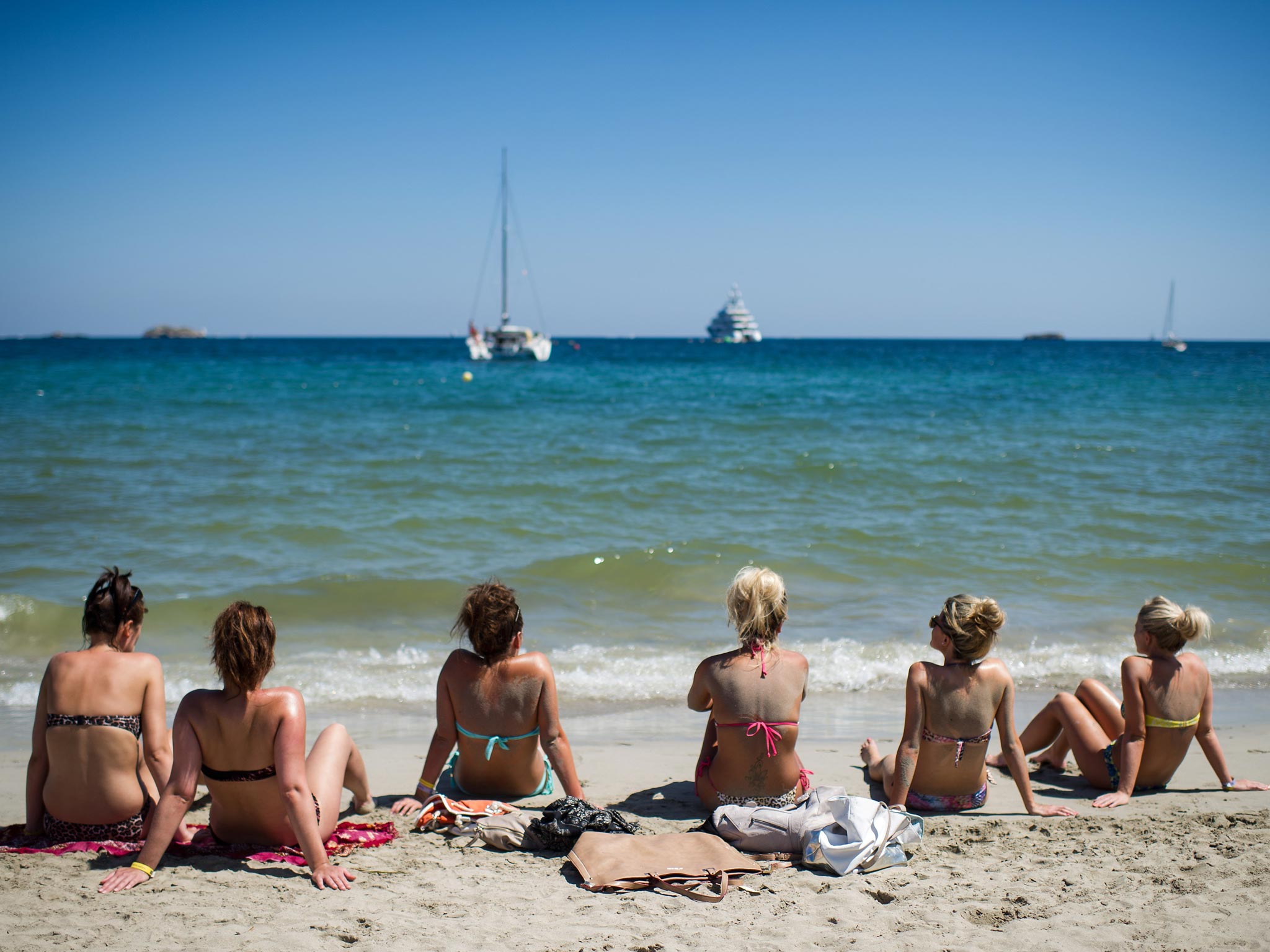Factor 50 sun cream does not offer complete protection from skin cancer, scientists warn
Cancer Research UK report finds sun cream is not enough to protect skin

Your support helps us to tell the story
From reproductive rights to climate change to Big Tech, The Independent is on the ground when the story is developing. Whether it's investigating the financials of Elon Musk's pro-Trump PAC or producing our latest documentary, 'The A Word', which shines a light on the American women fighting for reproductive rights, we know how important it is to parse out the facts from the messaging.
At such a critical moment in US history, we need reporters on the ground. Your donation allows us to keep sending journalists to speak to both sides of the story.
The Independent is trusted by Americans across the entire political spectrum. And unlike many other quality news outlets, we choose not to lock Americans out of our reporting and analysis with paywalls. We believe quality journalism should be available to everyone, paid for by those who can afford it.
Your support makes all the difference.A study is warning that even high factor sun cream cannot be relied on to offer complete protection against the deadliest form of skin cancer.
A report by Cancer Research UK found that while sun cream with an SPF of 50 can reduce DNA damage caused by the sun and slow the onset of malignant melanoma, it does not offer complete protection.
Malignant melanoma is now the fifth most common cancer in the UK, with more than 13,000 people being diagnosed with the disease annually. The number of people being diagnosed is increasing, leading the charity to make skin cancer a key area of research.
Researchers found mice who were predisposed to melanoma took only around 30 per cent longer to develop cancer when coated in SPF 50 sun cream than those who were not.
The research, published in the scientific journal Nature, revealed that UV light directly damages DNA in the skin's pigment cells, which increases the chance of developing the disease.
Professor Richard Marais, a study author and Cancer Research UK scientist, based at the University of Manchester, said: "UV light has long been known to cause melanoma skin cancer, but exactly how this happens has not been clear. These studies allow us to begin to understand how UV light causes melanoma.
"UV light targets the very genes protecting us from its own damaging effects, showing how dangerous this cancer-causing agent is. Very importantly, this study provides proof that sunscreen does not offer complete protection from the damaging effects of UV light.
"This work highlights the importance of combining sunscreen with other strategies to protect our skin, including wearing hats and loose fitting clothing, and seeking shade when the sun is at its strongest."
Dr Julie Sharp, head of health information at Cancer Research UK, warned that people exposed to sunlight must wear a cream with good UVA protection.
She said: "We've known for some time that sunscreen, when applied properly, can help protect our skin from the harmful effects of the sun's rays. But people tend to think they're invincible once they've put it on and end up spending longer out in the sun, increasing their overall exposure to UV rays.
"This research adds important evidence showing that sunscreen has a role, but that you shouldn't just rely on this to protect your skin.
"It's essential to get into good sun safety habits, whether at home or abroad, and take care not to burn - sunburn is a clear sign that the DNA in your skin cells has been damaged and, over time, this can lead to skin cancer."
Additional reporting by Press Association
Join our commenting forum
Join thought-provoking conversations, follow other Independent readers and see their replies
Comments